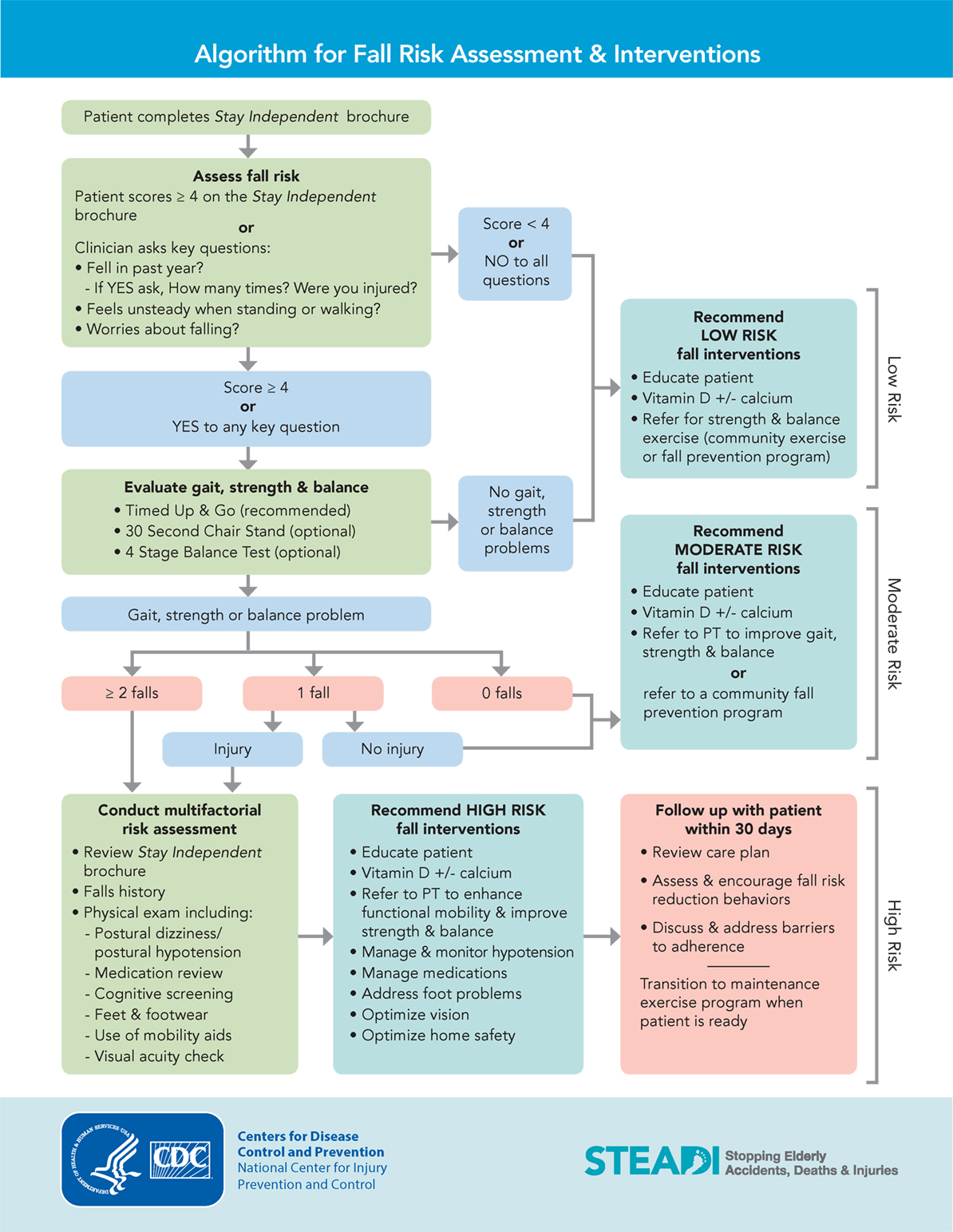Dementia Fall Risk Fundamentals Explained
Dementia Fall Risk Fundamentals Explained
Blog Article
Dementia Fall Risk Fundamentals Explained
Table of ContentsThe Basic Principles Of Dementia Fall Risk The Single Strategy To Use For Dementia Fall Risk5 Simple Techniques For Dementia Fall RiskIndicators on Dementia Fall Risk You Need To KnowAbout Dementia Fall Risk
You may be worried because you have actually had a loss prior to or because you've noticed you're starting to feel unsteady on your feet. You might have discovered modifications to your health and wellness, or simply really feel like you're reducing down a little. Whatever the reason, it isn't unusual to become careful and shed self-confidence, and this can stop you doing the important things you utilized to do and make you feel more separated.If you have actually had an autumn or you've started to really feel unstable, tell your physician even if you really feel great otherwise. Your doctor can check your equilibrium and the means you stroll to see if renovations can be made. They might be able to refer you for a falls threat assessment or to the drops avoidance service.
This information can be gotten through meetings with the individual, their caretakers, and an evaluation of their medical records. Begin by asking the individual regarding their background of falls, including the frequency and situations of any type of recent falls. Dementia Fall Risk. Ask about any type of movement troubles they might experience, such as unstable or trouble walking
Conduct a thorough testimonial of the individual's drugs, paying certain interest to those understood to boost the danger of falls, such as sedatives or drugs that reduced blood stress. Figure out if they are taking multiple drugs or if there have been current adjustments in their drug routine. Examine the individual's home atmosphere for prospective hazards that can increase the threat of falls, such as bad illumination, loosened rugs, or lack of grab bars in the bathroom.
Top Guidelines Of Dementia Fall Risk
Guide the individual through the fall danger evaluation type, describing each concern and videotaping their responses accurately. Calculate the complete threat rating based on the feedbacks given in the analysis type.
This plan may include workout programs to improve strength and balance, medication changes, home modifications, and references to other professionals as required. Routinely keep track of the individual's progression and reassess their threat of drops as needed. Modify the care strategy based on changes in their health condition or home environment. Provide recurring education and support to promote safety and lower the risk of falls in their daily living tasks.
Lots of studies have actually shown that physical treatment can aid to decrease the threat of falling in adults ages 65 and older. In a brand-new study (that checked out drops risk in women ages 80 and older), scientists calculated the economic influence of choosing physical treatment to stop drops, and they found that doing so saves $2,144, including all the concealed expenses of your time, discomfort, missed out on life events, and the dollars spent for solutions.
More About Dementia Fall Risk
Checking your heart price and blood pressure dimensions at rest and while you change positions (from resting or lying to standing). A straightforward examination of your reasoning (cognitive) capacities. Analyzing your equilibrium, More Info toughness, and strolling capacity. A straightforward vision examination. Examining your feet and footwear. A home security evaluation. Based on the assessment results, your physical therapist will create a plan that is customized to your certain requirements.
Older grownups that have problem strolling and chatting at the exact same time check my site go to a greater risk of dropping. Dementia Fall Risk. To help enhance your safety during everyday tasks, your physical specialist might design a training program that will challenge you to preserve standing and strolling while you do an additional task. Examples consist of strolling or standing while counting in reverse, having a conversation, or lugging a bag of groceries
Your physiotherapist also can identify which tasks you ought to stay clear of to stay secure. Community-based drops prevention programs aid people to: Minimize their worry of dropping. Set objectives for enhancing their exercise. Make their homes much safer. Exercise a lot more to increase their stamina and equilibrium. These programs typically are led by volunteer coaches.
Everything about Dementia Fall Risk

Measles, or rubeola, is a highly infectious, intense viral contagious condition triggered by the measles infection. Some individuals consider measles as simply a breakout and high temperature that cleans up in a couple of days; nonetheless, measles can cause severe health and wellness difficulties, specifically in children younger than 5-years-old. The most effective defense versus measles is the measles, mumps, and rubella (MMR) vaccine.
Loss are an usual reason for injury amongst older adults. According to the CDC, in one year alone, fall-related injuries added to over $50 billion in medical prices (Dementia Fall Risk). In hospital settings, older grownups go to specifically high danger of falls due to the fact that their lowered wheelchair from being confined to a click to investigate space or bed.
Dementia Fall Risk Things To Know Before You Get This

She has no history of falls, her gait is stable, and she nullifies with no issues. The previous registered nurse states that she calls for help to the restroom when she requires to go.
Examples of common loss interventions/measures include: Guaranteeing a patient's essential things are available. Placing the patient's bed rails up with the alarm system on. Assisting a person while they're obtaining up from bed. Beyond understanding exactly how to use the Johns Hopkins Loss Danger Analysis Tool, it's important that centers integrate its usage into a much more comprehensive fall avoidance plan.
Report this page